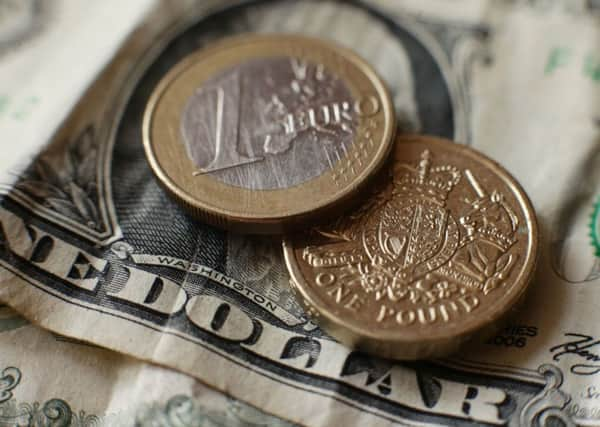Pound recovers after poll hints at hung parliament
This article contains affiliate links. We may earn a small commission on items purchased through this article, but that does not affect our editorial judgement.


The pound was trading broadly flat against the US dollar at $1.28 after having dipped by as much as 0.5 per cent following a YouGov poll indicating that Theresa May’s Conservative Party could lose 20 seats and see its majority wiped out. Against the euro, the pound was up 0.1 per cent at €1.14.
Advertisement
Hide AdAdvertisement
Hide AdThe fresh election data is based on a complex model and suggests the Prime Minister’s gamble of calling a snap election in the hope of a landslide win could backfire spectacularly.
Michael Hewson, chief market analyst at CMC Markets, said: “While the pound has recovered some ground after its wobble at the end of last week, there is a slightly more cautious attitude as a result of those narrowing polls, with another survey showing that the prospect of a hung parliament has also increased, which has also acted as a bit of a weight around sterling’s recent progress.”
• READ MORE: Scottish economy fears as UK growth revised downward
YouGov’s analysis puts the Tories on 310 seats, down from the 330 they went into the election campaign with, and 16 short of a majority.
Labour would get 257 seats, up from 229, the Liberal Democrats ten, up from the nine Tim Farron’s party held when the election was called, the SNP 50, the Greens one and Plaid Cymru three.
The pound has plummeted since Britain voted to quit the European Union as confidence in the country’s economic prowess has evaporated.
Advertisement
Hide AdAdvertisement
Hide AdFigures out last week showed that the economy suffered an even deeper slowdown at the start of the year as the services sector came under pressure and inflation dealt a blow to household spending.